Grocery Stores Struggle with Stock Shortages Amid Ongoing Freezing Temperatures
As a significant winter storm continues to batter the Midwest, South, and East Coast, local grocery stores are facing unprecedented challenges in maintaining sufficient supplies of essential items. The storm, which started two days ago, has intensified the demand for everyday essentials such as milk, juice, produce, soups, and meats, resulting in empty shelves and frustrated consumers.
The ongoing winter weather has further strained an already challenged supply chain, causing delays and disruptions. Miguel Gomez, a professor of food marketing at Cornell University, warns of continued challenges, anticipating prolonged out-of-stock situations for certain grocery products.
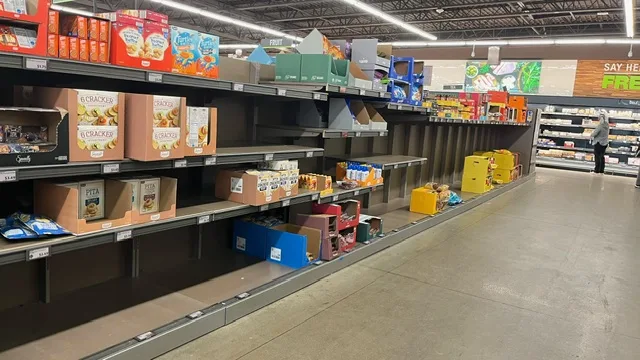
Aldi, Alabaster. Low stock following local weather alerts on Tuesday, 16 January 2024.
Consumers across the country continue to express their frustration on social media, sharing images of barren shelves at popular grocery chains like Trader Joe’s, Giant Foods, Walmart, Aldi, and Publix. Mia Daughtery, posted pictures taken at an Aldi Store in Alabaster, Alabama. Underscores the severity of the situation with shelves picked clean of produce and other food items, even during non-peak hours.
Daughtery’s recent experiences highlight the persistent impact of the ongoing winter storm on grocery supplies. Delivery trucks have been delayed, leaving grocery stores with depleted stocks of essential items. Day-to-day staples like eggs, fresh fruit, and garlic remain scarce, adding to the challenges faced by both retailers and consumers.
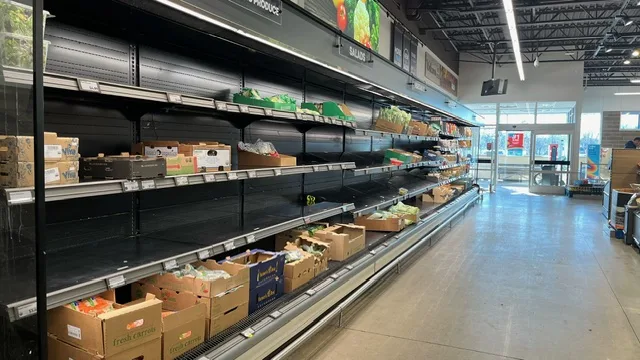
Aldi, Alabaster. Low stock following local weather alerts on Tuesday, 16 January 2024.
According to IRI, grocery stores, even in the best of times, are typically stocked between 90% to 95% across product categories. Consumers begin to notice gaps on store shelves when inventory falls below the 90% threshold. IRI’s data for the week ending January 9 showed supplies of several food and beverage categories were below that critical threshold. Frozen and refrigerated meats were below 90%, frozen baked goods were at 69%, and fruits, cookies, and breakfast items all fell below 90%. Refrigerated beverages were at 88%, and refrigerated dough took the steepest drop to 60%.
Elsewhere, sports and energy drinks, juices, pet care, and paper products also fell below the 90% supply threshold for the week, contributing to the challenges faced by grocery stores in meeting consumer demand.
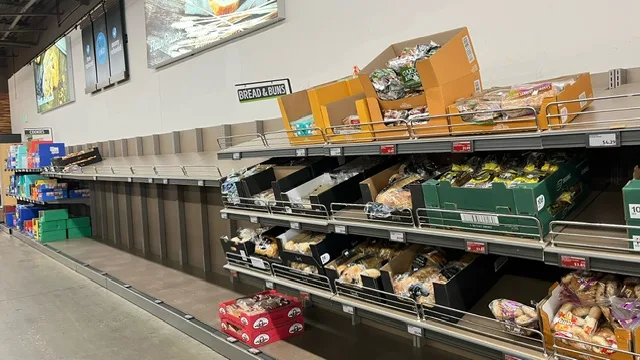
Aldi, Alabaster. Low stock following local weather alerts on Tuesday, 16 January 2024.
As the cold temperatures show no signs of abating, industry experts stress the importance of flexibility for consumers. Doug Baker, vice president of industry relations with FMI, emphasizes the need to find substitutes if preferred brands are unavailable and to resist hoarding to prevent exacerbating the situation.
Daughtery, remaining resilient in the face of ongoing challenges, continues to be creative with the groceries she already has at home. She plans to explore local farmers’ markets for fresh produce, showcasing a community-centric approach to overcoming the ongoing grocery supply challenges.
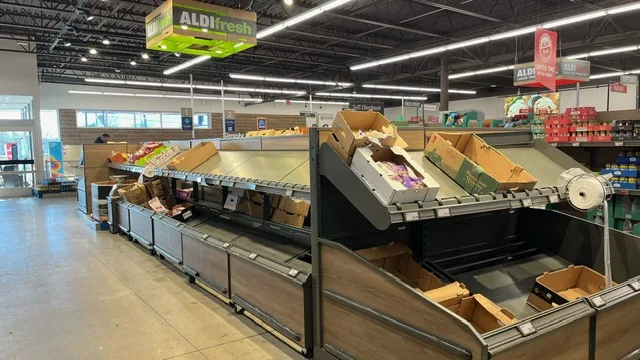
Aldi, Alabaster. Low stock following local weather alerts on Tuesday, 16 January 2024.
In conclusion, as the winter cold temperatures persist, local communities are urged to navigate the grocery shopping experience with continued flexibility and consideration for others, ensuring that everyone has access to essential items during this prolonged and challenging weather event.
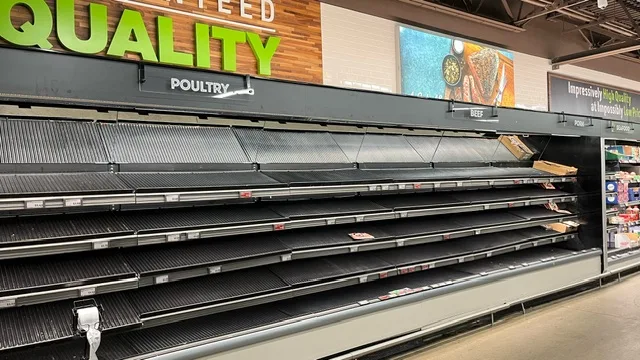








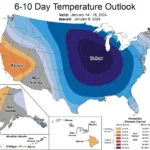


Post Comment